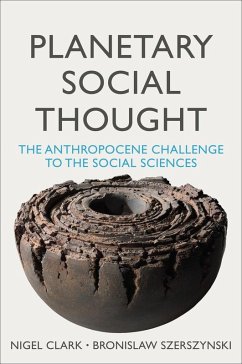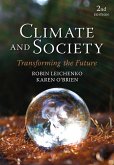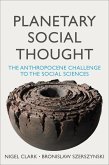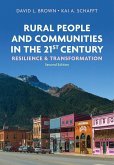Dieser Download kann aus rechtlichen Gründen nur mit Rechnungsadresse in A, B, BG, CY, CZ, D, DK, EW, E, FIN, F, GR, HR, H, IRL, I, LT, L, LR, M, NL, PL, P, R, S, SLO, SK ausgeliefert werden.
Noel Castree, University of Manchester
"Planetary Social Thought is a wide-ranging exploration of how closely intertwined, and how mutually sensitive, are the human and geological realms. This vivid and passionately argued book can help illuminate these new, emergent landscapes, and chart a path through them."
Jan Zalasiewicz, University of Leicester
"This book offers a terra-forming analysis, strongly willed to make us think. Using more than one analytic perspective at once--geos and bios and what exceeds both--its scope ranges topologically from the planet to the microbe. Planetary Social Thought is a feat of writing--and it is not afraid of animisms!"
Marisol de la Cadena, University of California, Davis
"Planetary Social Thought takes the challenge of the Anthropocene to a new level. Rather than simply adopting a social science view of the planet, the authors allow planetary forces to redefine the very sense of the social, and allow the planet to take its place in the contested space of social entities. Clark and Szerszynski have redefined what "thought" will be for the twenty-first century."
Claire Colebrook, Pennsylvania State University









